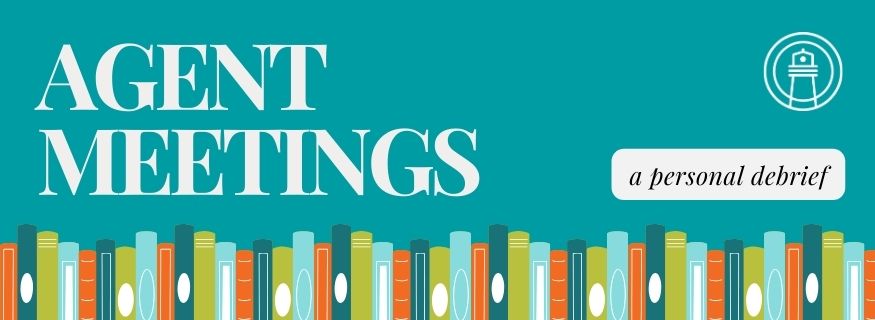
My name is Natalie, and this is my second summer interning for Lighthouse. During my time here, I have managed agent meetings for the past two Lit Fests while helping with other miscellaneous tasks. I am a sophomore in college at Oregon State University, majoring in Creative Writing, and I am also undergoing the process of writing my own book and navigating the industry myself. In this article, I want to share some of the secrets I have learned that could be beneficial to those who are trying to break into publication.
Let’s be honest. Regardless of if you’ve written one novel or twenty, walking into an agent meeting can be terrifying. Or at least, I was terrified of mine. Though I had interacted with agents before in a professional setting, those conversations had never been about querying a book, so when it came time for me to sit down with an agent and bare my soul to them (because that is exactly how handing over my freshman novel felt), I was freaking out. I was sure that the agent would say, “This is awful. Stop writing. Look into other career options.” Of course, they said none of these things, and that is when I remembered the one thing everyone had told me and the first thing I am going to tell you: the worst they can say is no.
You might leave an agent meeting with a promise of a deal, a request to see more pages, or information to contact them when the book is finished. However, there’s also a chance you could leave the meeting with them having turned your work down. Their rejection does not mean you are a bad writer or your book is a failure. It simply means your work was not a right fit for that agent. This is just a step towards finding the agent that works for you.
For this reason, it is important to find agents that align with the genre you are writing for. I was lucky to have found an agent who was looking for books in the same genre I wrote, and who was open for queries and meetings. When looking through agents and their bios, I found it helpful to look for keywords. Personally, I write YA Urban Fantasy, so those were the keywords I was scanning for. It makes it far easier to read through multiple agents’ biographies and interests if you are not forcing yourself to read the full thing. After I narrowed it down, the next step was to reach out.
Once you have secured a meeting, half of the hard work is done. Now you can focus on the way you approach your meeting. One of the biggest issues that I have seen when managing agent meetings at Lit Fest over the past couple of years is individuals showing up late or not showing up at all to their meetings. Obviously, there are circumstances that are out of people’s control that may cause them to be late or to miss a meeting, which is why communication is so important so that the agents know that you respect them and are planning on being available to reschedule.
Within your meeting, it is also essential to remember that you are your book’s only advocate. Until you officially sign with an agent, it is your job to protect your novel and ensure that any changes made are in its best interest. In my experience, the agent that I met with was content with the state of my novel and was only offering small suggestions of things to change. While this may not always be the case and some agents may request larger changes surrounding things like plot or structure, these suggestions may help you to realize a lot about your story.
One of the ways that I first realized the agent that I met with was compatible for both me and my story was when I asked about the flow of a particular chapter. They agreed that it wasn’t working and gave some suggestions for how to advance the writing. In tinkering with these changes, I was able to realize that I needed to change a few things in my novel, and after the edits, I was pleased with the finished product. During your agent meeting you may come to realize things about your book. Perhaps it is not as done as you thought it was, or you need to rewrite the whole thing.
Regardless of your meeting’s outcome, these takeaways are vital in your book becoming the best version of itself. At the end of the day, you should be very proud of yourself and your writing abilities for being able to endure such a trying process. Keep writing, keep reaching out, and soon enough, you’ll figure out a process of your own that will result in the success of you and your novel.

